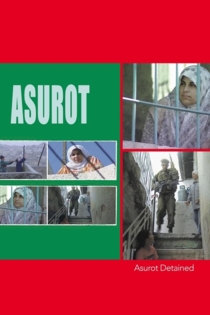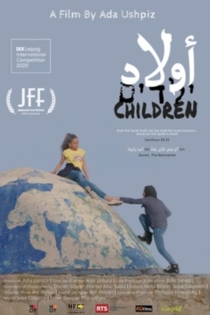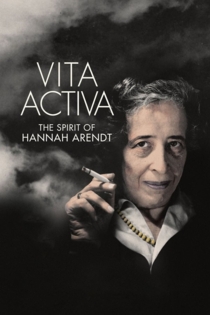
Ada Ushpiz
2021Asurot
anat even, Ada Ushpiz
Najwa, Nawal and Siham, three Palestinian widows, live with their 11 children in a house on Shuhada Street in Hebron. Their house lies on the border; the façade is under Israeli occupation, the Palestinian authority controls the back. At the entrance to the house a military post, on the roof the Israeli army has placed a watch point over Palestinian Hebron. Three women, trapped in the middle, constantly surrounded by Israeli soldiers, carry on their difficult lives in a perverse situation: the occupation becomes a routine, the absurd becomes a given. This is the story of an occupation that extends to the staircase and the roof of the house, where it encounters poverty, loneliness, pain, but also the small joys of everyday life. This is an internal prison, the external one is the ongoing occupation.
Asurot

Yeladim
Ada Ushpiz
There are children, too, among the Palestinian insurgents. For some time now, the Israeli side has observed minors who take an active part in an Intifada, especially with knives. They are harshly dealt with: prison, hardly any judiciary support. Ada Ushpiz, filmmaker and journalist, comes surprisingly close to some of the Palestinian families concerned. She has accompanied the dubious insurgents over several years and witnessed terrible pressure.
Children

Vita Activa : The Spirit of Hannah Arendt
Ada Ushpiz
Hannah Arendt, Judith Butler
The life and work of German political philosopher of Jewish descent Hannah Arendt (1906-75), who caused a stir when she coined a subversive concept, the banality of evil, in her 1963 book on the trial of Nazi war criminal Adolph Eichmann (1906-62), held in Israel in 1961, which she covered for the New Yorker magazine.
Vita Activa: The Spirit of Hannah Arendt

Kalot Hamidbar
Ada Ushpiz
This is the story of three Bedouin women, struggling within a polygamous system. Living in the Negev desert in Israel, the story is told through the eyes of a wedding photographer, Mariam Al-Quader. She herself is living under constant fear that her husband will marry "over her" (the expression used when a man chooses an additional wife). The other two women are pushed into marrying already married men, and become "second wives", forced to cooperate within a structure they despise or are afraid of. \par \par \par The family tragedies presented in this film highlight the strength and survival of the social structures and their injustices, leaning usually on the victims' reluctant cooperation. This is most exemplified by the climax of a Bedouin wedding, wherein the groom showers upon his bride gold and jewelry in a gesture symbolizing her purchase.
Desert Brides
